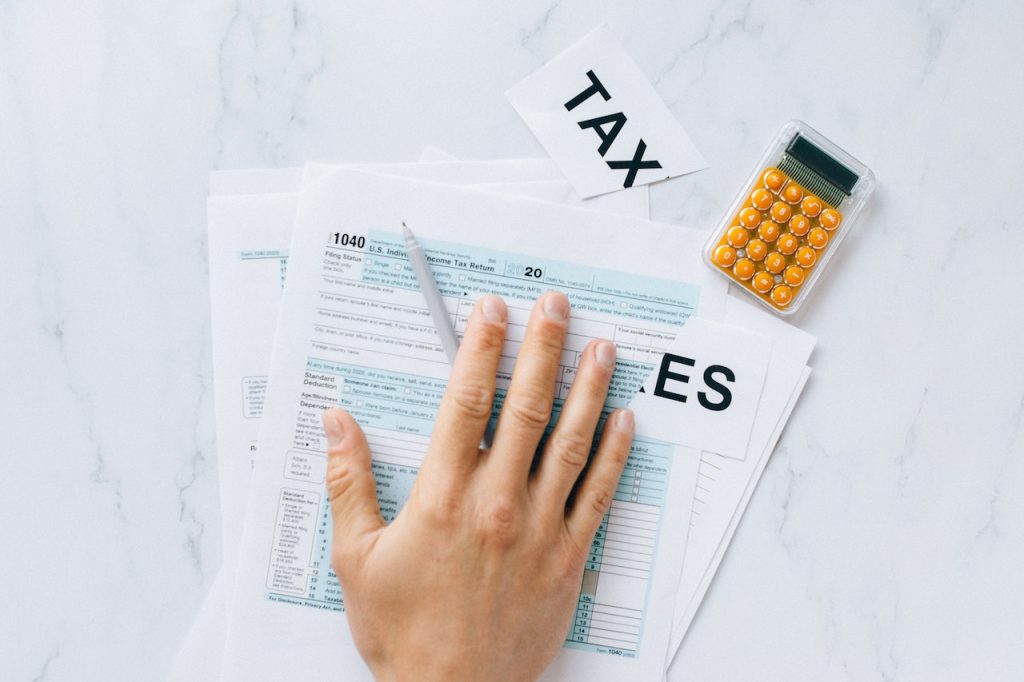Mastering Expense Tracking: We’ll guide you through the process of mastering expense tracking and designing an effective chart of accounts to maximize tax deductions. As a small business owner, it’s important to understand and manage your expenses to maintain financial health and optimize tax benefits. In this article, we’ll explore the importance of tracking expenses, provide insight into creating an efficient chart of accounts, and share tips for using accounting software to simplify the process. let’s go inside!
Why Expense Tracking Matters

Accurate expense tracking is a cornerstone of effective financial management for small businesses. Not only does it help you understand your cash flow and track your spending habits, but it also enables you to identify areas where you can save money and optimize your tax deductions.
By keeping a close eye on your expenses, you’ll be better equipped to make informed decisions that positively impact your profits.
Designing an Effective Chart of Accounts

The chart of accounts is a structured system that classifies and organizes the financial transactions of your business. It provides a clear framework for tracking and categorizing expenses, making it easy to prepare accurate financial statements and identify tax deductions.
Here are some important steps for designing an effective chart of accounts:
- Identify your expense categories: Start by listing the different types of expenses your business regularly incurs. Common categories include office supplies, utilities, advertising, travel, and professional services. Customize categories to suit your specific business needs.
- Create subcategories: Within each main category, divide expenses into subcategories. For example, under Advertising, you might have subcategories such as Online Advertising, Print Media, or Social Media Marketing. This level of detail will provide greater visibility into your spending patterns.
- Specify Account Code: Specify unique account codes for each category and subcategory. These codes will be used to track and identify expenses in your accounting software. Consistency is key, so set up a logical system that makes sense to you and your team.
- Review and Refine: Regularly review and refine your chart of accounts so that it remains relevant and aligns with the evolving needs of your business. As your business grows, you may need to add new categories or make adjustments to existing categories.
Recommended Blog: How the Chart of Accounts Works in QuickBooks
Use of Accounting Software for Efficient Expense Tracking

Taking advantage of accounting software can significantly streamline your expense-tracking process. Look for software solutions that offer features tailored for small business accounting, expense management, and tax deductions.
These tools can automate data entry, generate reports, and provide a comprehensive overview of your financial health.
Some software options even integrate with tax deduction checklists, making it easy to identify reasonable expenses and maximize your deductions.
Read Also: 10 Tips for Managing Your Finances with QuickBooks
List of Tax Deductions for Businesses

Tracking your business expenses is not only important for maintaining financial transparency, but it also plays a vital role in maximizing your tax deductions.
An essential tool in this process is a well-designed chart of accounts. we’ll explore the major expenses and their summaries to help you keep track of expenses and create an effective chart of accounts that will optimize your tax deduction.
Advertisement & Marketing Expenses
In today’s competitive market, advertising is vital for business growth. Deductible advertising expenses may include online advertising, print media campaigns, radio or television advertising, outdoor advertising, direct mail promotion, social media advertising, and sponsorship expenses.
Tracking these expenses separately allows you to assess their impact on your bottom line and determine their tax deductibility.
Commission & Brokerage Expenses
If your business involves sales agents or brokers, the commission paid to them is tax deductible. By categorizing and tracking commissions separately, you can easily monitor these expenses and evaluate their impact on your overall sales and profitability.
Communication Expenses
In our interconnected world, communication is a fundamental aspect of running any business. Categorizing separate communication costs such as phone bills, internet charges, and other related services helps you identify the costs associated with keeping your business connected and how to manage those costs effectively.
Contract labor Expenses
When hiring independent contractors or freelancers for specific projects or tasks, their payment is covered under contract labor costs.
Tracking these expenses separately gives you a clear overview of the costs involved in outsourcing work and helps you calculate your tax deductions more accurately.
Depreciation Expenses
Over time, the value of your business assets depreciates. By allocating a separate account for depreciation, you can systematically record and track the decline in value of your equipment, machinery, and other assets.
This information is important for tax purposes since you can claim depreciation as a deductible expense.
Check: Robot Depreciation and Taxation: Understanding the Classification and Depreciation Rates for Robots
Employee Benefit Programs
Providing benefits to your employees is an investment in their well-being and job satisfaction. Deductible employee benefit programs may include health insurance, retirement plans, wellness programs, and other related expenses.
Tracking these costs separately allows you to evaluate the costs and benefits associated with your employee benefits programs.
Equipment Rental and Lease
If you rent or lease equipment needed to operate your business, it’s important to track these expenses separately. Whether it’s office equipment, machinery, or vehicle rental, having a dedicated account for equipment rentals and leases allows you to track expenses and claim them as deductible expenses.
Insurance Expenses
Insurance coverage is important to protect your business from unforeseen events and liabilities. This category includes premiums paid for general liability insurance, property insurance, professional liability insurance, and other related policies.
Separating out insurance costs helps you keep track of the costs associated with protecting your business and ensures some tax deductions.
Interest Paid
Interest paid on a loan or line of credit used for business purposes is another important deductible expense. By tracking and categorizing interest paid separately, you can accurately calculate the interest expense incurred by your business and claimed it as a deduction when filing your taxes.
Legal and Professional Services
Legal and professional services play a vital role in the smooth running of any business. This category includes fees paid to lawyers, accountants, consultants, and other professionals.
By separating these costs, you can easily identify and track the costs associated with obtaining expert advice and assistance while ensuring proper tax deductions.
If you are planning to Start a Consultancy Business then you definitely Check our blog: Top 10 Expenses for Starting a Consultancy Firm, this will help you in making an informed decision for starting a professional Business.
Materials and Supplies
Every business needs different materials and supplies to run efficiently. This category includes expenses related to the purchase of office supplies, raw materials, inventory, packaging materials, and other tangible items needed for your business activities.
By tracking these expenses separately, you can closely monitor your inventory costs and claim them as deductible expenses.
Meals and Entertainment Expenses
Business food and entertainment expenses are often tax-deductible, but there are some rules and limits. By tracking these expenses separately, you can keep track of client meetings, business-related meals, and recreational activities, while ensuring tax compliance while maximizing your deductions.
Office Expenses
Office-related expenses, such as rent, utilities, maintenance, repairs, and cleaning services, fall into this category. By tracking these expenses separately, you can gain insight into the cost of maintaining your office space and claim it as a deductible expense.
Other Business Expenses
This category serves as a catch-all for any miscellaneous expenses that don’t fit into the other predefined categories. This provides the flexibility to account for any unique or one-time expenses that may arise in the operation of your business.
Rent and lease (Commercial Building/land)
If you rent or lease a building or land for your business premises, it’s important to track these expenses separately. By creating a dedicated account, you can monitor your rental or lease expenses while ensuring accurate deductions and financial transparency.
Repair and Maintenance Cost
Regular repairs and maintenance are essential to keeping your business assets in good working order. By tracking these expenses separately, you can monitor expenses associated with the maintenance and repair of equipment, vehicles, and other assets, while ensuring proper tax deductions.
Taxes and Licenses
Tax payments and license fees are required to operate the business legally. This category includes various taxes associated with your industry such as income tax, sales tax, property tax, and license fee.
Tracking these expenses separately helps you comply with tax obligations and claim deductions correctly.
Traveling Expenses
If your business involves frequent travel, it’s important to track and categorize travel-related expenses. This includes transportation, accommodation, food, and other travel-related expenses. By creating a separate account for travel expenses, you can monitor expenses associated with business trips and maximize your tax deduction.
Utility Cost
Facilities like electricity, water, gas, and internet services are essential for running any business. By tracking these expenses separately, you can figure out the cost of utilities and claim them as a deductible expenses.
Salary and wages
Employee wages and salaries make up a significant portion of business expenses. It’s important to track these expenses separately to accurately calculate payroll taxes and ensure compliance with employment regulations.
By creating an effective chart of accounts containing these major expense categories, you can streamline your expense tracking process, maintain financial transparency, and optimize your tax deductions.
Remember, it is always advised to consult a professional accountant or tax advisor to ensure compliance with tax rules and specific requirements of your jurisdiction.
Expertise cost tracking is an ongoing process that requires attention to detail and organization. With a well-designed chart of accounts, you can navigate the complexities of tax deductions, enhance your financial management, and pave the way for your business’s financial success.
Get the latest information on business, finance, investment, brand building, lifestyle, entertainment, and billionaire quotes on edueasify.
